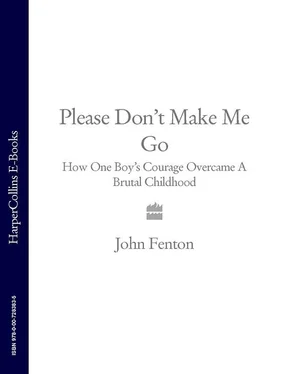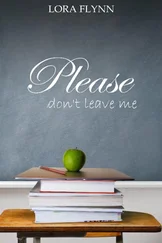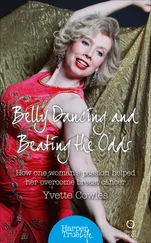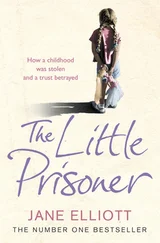There is something comforting in dreams. Anything is possible and you can escape the misery of your day-to-day life. I often wished I could just live in a dream world and never wake up.
My Mum and Dad should never have married. They didn’t love each other. They only married because he got her pregnant in a moment of lust and in those days, with the stigma attached to being a single mother and the shame that would be brought on the whole family by her condition, there was only one course of action left open to them. But right from the start it was a marriage made in hell.
My mother was a fun-loving girl of eighteen. She was very bright, but was forced to leave school at fifteen and work in a shop in London to help support her mother. The fifteen shillings a week she brought in was all that kept the family from going under. My father was thirty years old and had recently arrived from Wexford in southern Ireland. He’d come to England looking for work and had got a part-time job as a barman in the West End. It was in this bar that he met my mother.
Elizabeth, my sister, was born in May 1939 just six months into their marriage. Four months later the Second World War broke out and my father enlisted in the army. Because he had flat feet, he was given a home posting in the big army stores in Southampton. This meant that he could get back to London quite regularly and, as a result of one visit, my mother gave birth to my second sister, Jean, in October 1942. Then, on April 22nd, 1944 I exploded into the world. My mother told me that I had rushed my way out – but maybe it was because a V1 rocket had gone off a few streets away at the critical moment.
My father was a small, slightly built Irishman. He was strictly teetotal; both his parents had died from alcohol abuse and, like so many small men, he walked around with a permanent chip on his shoulder. He fancied himself as a ladies’ man and went from affair to affair without a shadow of remorse. He had no qualms about hitting women and it was not long before my mother felt the power of his fist in her face. He had a job on London Transport as a night cleaner for the buses. He was not averse to hard work, so earned a decent wage, but never divulged the amount to my mother and only gave her the minimum for food. All of his extra money went on keeping up his appearance and conducting his extramarital affairs.
My earliest memories are blurred snatches of pictures here and there, but violence was always around – from the Carmelite nuns who used to whack our hands with a bamboo cane at my first primary school through to Dad’s explosions of temper at home. By the age of seven, just after my kid sister Jennifer was born, I had a pronounced nervous stammer and had to attend a speech therapy clinic in Hanwell. The therapist gave me tongue-twisting exercises to repeat. I still remember one: ‘Look at Lily, Lily up the lamppost; come down Lily, you do look silly.’
Because of my stammer I became a prime target for the bullies in my school. Having a stammer was nearly as bad as having to wear glasses, which got you called ‘four eyes’. Whenever I had to stand up to read aloud, the entire class would look in my direction and start sniggering. This made me stammer even more and the teacher would tell me angrily to sit down again. It wasn’t long before I developed a massive inferiority complex and tried to hide in the background away from the cruel jibes and laughter.
St Gregory’s Catholic Primary School was situated in an affluent part of Ealing and most of the children came from quite wealthy backgrounds. Mum had very little money, so while the clothes I wore were clean, they never came close to being like the other children’s. She had a nose for finding the best bargains in a jumble sale and she’d carefully scrub them in the large stone copper in the scullery. I was always excited when I tried them on, never noticing the odd frayed collar or sewed-up hole in my trousers. I’d feel proud as I strutted off to school with my nice new clothes but I was soon brought back down to earth when the children laughed and taunted me unmercifully about the way I looked. I stood out like a sore thumb in my shabby, secondhand clothes.
I hated having to get changed into my sports kit to play football. My underwear, vest and pants, were always hand-me-downs from my two older sisters. I complained to mum on several occasions about wearing girl’s knickers but she told me not to be stupid as no-one could see what I was wearing under my trousers. She had no idea the taunts I had to endure from the other boys when they saw them. ‘He’s got a fanny!’ was their favourite. I would feign illness to avoid school on days when we had physical education or sports. If I was forced to go I would sneak into one of the toilet cubicles and struggle into my kit in private.
My home life was equally unhappy. My father seemed to hate me and would hit me unmercifully for no apparent reason. On my eighth birthday, I remember I went into the back garden with my mother and sisters to play a game of cricket with a bat and ball my grandmother had given me. I accidentally hit the ball against the kitchen window and cracked a pane of glass. My father rushed out into the garden and pulled one of the cricket stumps out of the ground then proceeded to beat me all over my back and legs with it. The beating went on for two or three minutes, and when at last he stopped, I was left on the ground unable to move. My mother kept me off school for over two weeks until the bruising had gone.
Of course, she fared no better. I lost count of the number of times she came crawling into my bed of a night after yet another violent row. She was always inconsolable. I would cuddle up to her in the hope that it would make her feel better, but it was always to no avail. On these occasions it was the sound of her whimpering that sent me into a troubled sleep. I grew to hate my father and promised myself that when I was grown up there would be a reckoning.
He usually got out of bed around four o’clock in the afternoon. I never knew what to expect when I arrived home from school. Sometimes I would hear the shouting before I entered the house and would sneak up to my room and bury my head under my pillow to shut out the noise. Other times I would arrive home to find my mother already crying and my father scowling angrily. These were the worst times. Invariably, my father would hit me for just coming into the room. One day, I had fled the room screaming out how much I hated him. I went to my bedroom and cried myself to sleep but awoke some time later to the agonising pain of my father hitting me with a piece of timber, which he was wielding with exceptional ferocity. The next day at school I passed a lot of blood in my urine. It was then that I decided that my best option was to arrive home after six o’clock, which was when my father usually left for work.
My favourite place to go after school was Jacob’s Ladder railway crossing, where trains from Ealing Broadway and West Ealing passed under a bridge on their way to and from the West Country. I had a little book of train numbers and underlined them every time I saw a new train thundering down the track. It was always exciting when the Flying Scotsman came speeding by. I would run to the part of the bridge where the funnel smoke would engulf me in a thick cloud and breathe in the glorious aroma of smoke and steam. Sometimes I was enjoying myself so much that I would still be there at seven.
But I couldn’t stay out of my father’s way all the time. There were still weekends to get through and the evenings when he started work at a later hour. By the time I was twelve years old I had become hardened to my father’s beatings and nastiness, and I no longer hid with fear in my room. Whenever I witnessed one of his violent outbursts against my mother I would do my best to help her. I would try to kick him or throw something at his head. This meant, of course, that I got another beating but at least it stopped him hitting my mother. I hated him with a passion that was almost as strong as the adoration I felt for my mother. Often I would lie in bed and think about how I would pay him back in kind when I was older.
Читать дальше












